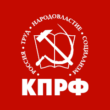Recently Middle East has been rocked by the storms of public outrage. President of Tunisia Ben Ali who turned the country into a public trough for his family and himself during a 23-year-rule has been forced to flee the country under the powerful popular pressure.
Social turmoil is raging today in the streets of the cities of Egypt. Far-reaching repercussions of these upheavals affect neighboring countries, i.e. in Jordan and Yemen. Public “street” being a substantial factor of the Middle East policy got us to listen to its strong voice.
Not too long ago there were seemingly no signs of such turn of events. However, tensions were maturing for a considerable period of time. The outbreak of indignation in Arab countries was stirred by a complex of circumstances primarily involving misery of the vast majority of people against the background of the outrageous luxury of life conditions of the ruling groups. The world economic crises aggravated the situation and its hardships were put on the shoulders of the most destitute part of the people while the rich become wealthier.
It needs to be taken into account that 30-years old young people form a considerable part of people of the Arab states. However, even those who obtained good degrees on their Motherland or at foreign universities remain jobless. Young people have no prospects and no chances for receive housing and making families. Unemployment and no future overall even for highly educated people is one more detonator of eruption of popular discontent.
Masses see the dominance of political figures dependant on the US in the leadership of a number of Arab states as the main root of their misfortunes. In this regard harsh anti-American sentiments constitute one of the critical factors of the current crises. It is also notable that failed ruling parties of Tunisia and Egypt, active members of Socialist International, upholding a commitment to democracy and human rights stronger than anybody else.
Of particular concern is the fact that the USA and its allies in Europe and Israel strive to benefit from the eruption of public discontent with a view “to relieve guard”, i.e. to change the ruling authorities of Arab states while maintaining their dependence on imperialist powers. We can state freely that the same model as color revolutions in Ukraine and Georgia, implicitly imposed by the USA and its allies, is being applied to Middle East.
Popular discontent with the pro-western policy of those elites was exploited to bring to power openly pro-American president Yuschenko and Saakashvili, loyally serving the USA. Apparently, the same strategy has been adopted in Washington in the framework of the American concept of the Large Middle East to bring it totally under the US control. The efforts towards the destabilization of the situation in Syria under the pretext of the country’s “democratization” reveal the intention of the West to change the balance of forces in that region. The USA and Israel are ready to plunge Middle East into the chaos in order to achieve their goals of the world dominance.
Simultaneously, political crises in a number of the Middle East countries reflects global capitalist crises. In addition to the venality and inefficiency of the local elites, the cause of the deep popular discontent lies in the fact that much-praised super-effective capitalism being declared as a high point of the history of humanity, turns out to be unable to provide the right to life itself for hundreds of millions of people. Islamic fundamentalism by no means forms the basis of the current events. The storm of public anger in the Middle East has ultimately class character.
Сommunist Party of the Russian Federation indicates that factors that caused the upheavals in a number of Arab countries really exist in Russia also. Striking indifference of the ruling group of the Russian Federation to the most burning public issues such as ruining of the education system and healthcare, barbarous corruption, uncontrolled increases in prices and fares will inevitably have aftermaths similar to those that are rocketing regimes in the Middle East that has seemed to be immutable.
CPRF welcomes and supports popular movements for genuine democracy in the Middle East, for socio-economic policy towards providing decent life for all citizens of the Arab countries.
Simultaneously, we call upon peoples of the Middle East to exercise vigilance as their revolutionary temper may be exploited by the imperialist powers to impose their henchmen on the wave of the people’s protests and maintain the faulty course that gave cause to such harsh upheavals.
Gennady Zyuganov
CPRF Central Committee Chairman
